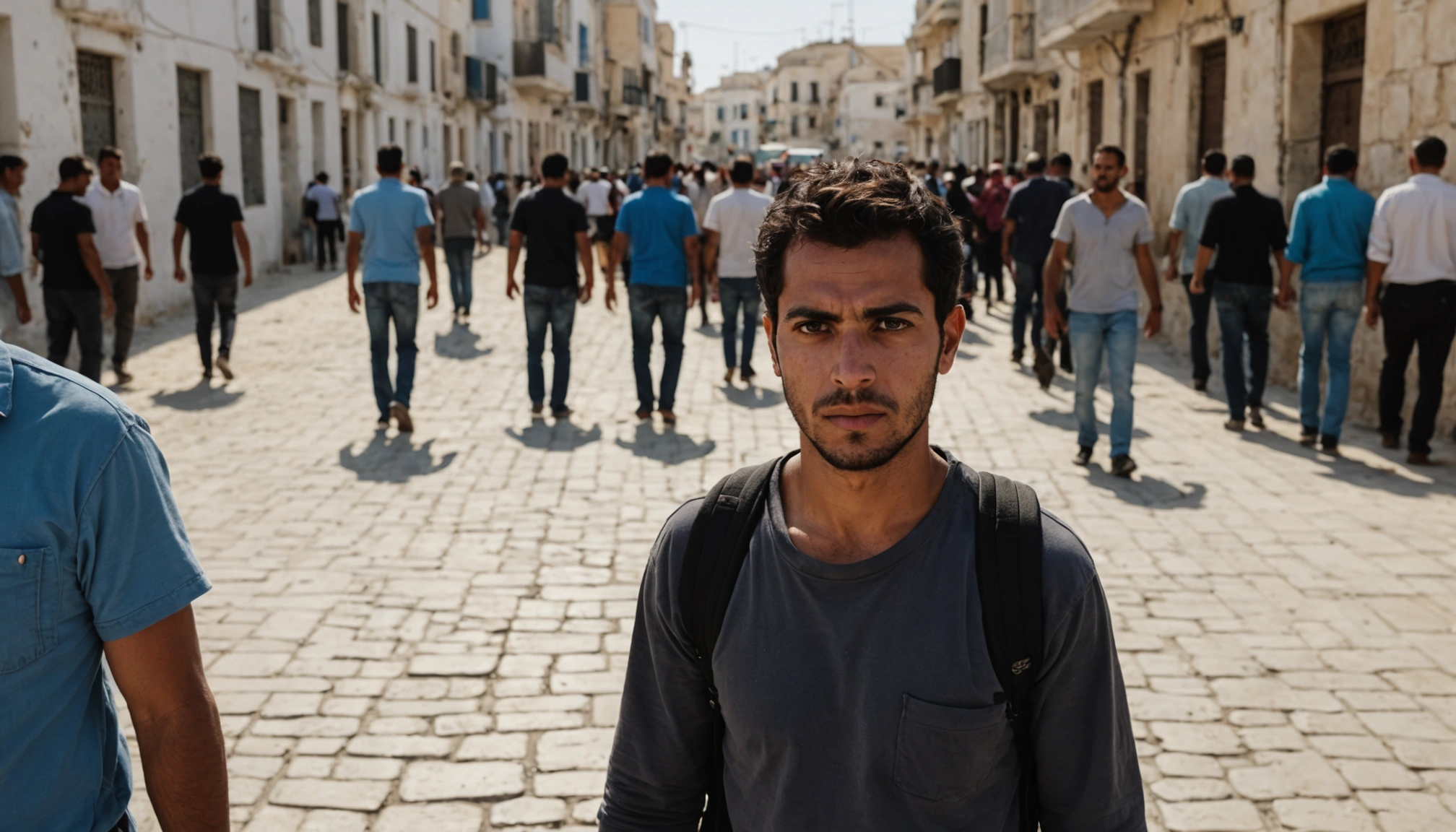Tunisia's "Safe Country" Status Faces Scrutiny Amid Rights Concerns

The European Union's recent proposal to designate Tunisia as a "safe country of origin" for asylum seekers has ignited a fierce debate, raising serious questions about the North African nation's human rights record and its capacity to protect vulnerable populations. While the EU Commission argues that this designation will expedite asylum procedures for Tunisian nationals, human rights organizations and international bodies express grave concerns, citing evidence of abuses against migrants, refugees, and even Tunisian citizens.
Expedited Asylum Processes vs. Individual Rights
On April 16, 2025, the EU Commission proposed a first EU-wide list of "safe countries of origin," including Tunisia, Kosovo, Bangladesh, Colombia, Egypt, India, and Morocco. The Commission's justification is that asylum applications from these countries have a low chance of success, and thus, processing them more quickly – within three months instead of the usual six – would streamline the system. This initiative is part of a broader effort to implement the EU's Asylum and Migration Pact, with certain elements being fast-tracked ahead of the pact's full implementation in June 2026.
However, critics argue that this "safe country" designation undermines the fundamental right to seek asylum and could lead to the refoulement – the forced return of individuals to a country where they face persecution or other serious harm. They emphasize that the classification of a country as "safe" does not guarantee the safety of all its nationals, and each asylum application must be assessed individually, regardless of origin.
Human Rights Concerns in Tunisia
Several reports from human rights organizations paint a concerning picture of the human rights situation in Tunisia, particularly for migrants and asylum seekers. Human Rights Watch, Amnesty International, and other groups have documented numerous instances of abuse by Tunisian authorities, including:
- Collective Expulsions: Since July 2023, Tunisian security forces have been accused of collectively expelling hundreds of Black African migrants and asylum seekers to remote border areas with Libya and Algeria, often without due process, and leaving them without food, water, or medical assistance.
- Violence and Abuse: Migrants, refugees, and asylum seekers have reported beatings, excessive force, arbitrary arrests and detention, and theft of belongings by Tunisian police, military, and national guard.
- Racist Rhetoric: President Kais Saied's inflammatory rhetoric against sub-Saharan Africans, accusing them of plotting to change Tunisia's demographic makeup, has fueled racist attacks and discrimination against Black communities.
These reports raise serious doubts about Tunisia's ability to provide a safe and protective environment for vulnerable populations, particularly those seeking asylum.
Lack of a National Asylum System
Despite acceding to the 1951 UN Refugee Convention, Tunisia lacks a national asylum law or system. The UNHCR currently conducts refugee status determination, but refugees face difficulties accessing residency documents and formal employment. This absence of a legal framework leaves asylum seekers in a precarious situation, vulnerable to arbitrary treatment and without clear legal recourse.
While there have been efforts to draft a national asylum law, the process has been stalled for years. UNHCR has urged the Tunisian government to finalize and implement this law to ensure adequate protection for refugees and asylum seekers.
EU-Tunisia Cooperation and Migration Control
The EU has been increasing its cooperation with Tunisia on migration management, providing financial and technical support to enhance border control and prevent irregular migration to Europe. This cooperation is formalized in a Memorandum of Understanding (MoU) signed in July 2023, which aims to stem the flow of migrants from Tunisia to Europe, increase returns of Tunisians without permission to remain in Europe, and facilitate returns from Tunisia to third countries.
However, human rights organizations criticize this agreement, arguing that it makes the EU complicit in abuses against refugees, asylum seekers, and migrants in Tunisia. They contend that the EU's focus on migration control undermines human rights safeguards and ignores the serious risks faced by vulnerable populations in the country.
UNHCR's Role and Concerns
The UNHCR has been working in Tunisia to provide protection and assistance to refugees and asylum seekers. As of January 2025, over 12,600 refugees and asylum seekers were registered with UNHCR in Tunisia, many from countries affected by armed conflict and widespread violence. These include individuals with urgent protection needs, such as victims of torture, gender-based violence survivors, and unaccompanied children.
The UNHCR has adapted its operations to address the evolving context, including absorbing activities previously implemented by partners to ensure that registered asylum seekers and refugees at heightened risk continue to receive critical assistance. However, the agency has also expressed concerns about the treatment of refugees and migrants in Tunisia, particularly the collective expulsions and the lack of access to basic necessities.
Alternative Perspectives and Considerations
While the human rights concerns are significant, some argue that designating Tunisia as a "safe country of origin" could incentivize the Tunisian government to improve its human rights record and develop a functioning asylum system. They suggest that the EU could use its leverage to push for reforms and ensure that Tunisia meets international standards for the protection of refugees and migrants.
It's also important to acknowledge that Tunisia faces significant challenges, including economic instability and a complex regional environment. The country is a major transit point for migrants and asylum seekers from sub-Saharan Africa and the Middle East, and it struggles to manage these flows effectively.
Conclusion: A Complex and Contentious Issue
The question of whether Tunisia is a "safe country of origin" for asylum seekers is a complex and contentious one. While the EU Commission seeks to expedite asylum procedures and manage migration flows more efficiently, human rights organizations raise serious concerns about the human rights situation in Tunisia and the potential for refoulement.
Ultimately, the decision of whether to designate Tunisia as a "safe country of origin" requires a careful balancing of competing interests and values. It is crucial that the EU and its member states prioritize human rights safeguards and ensure that all asylum applications are assessed individually, regardless of the applicant's country of origin. Furthermore, the EU should use its influence to encourage Tunisia to improve its human rights record, develop a national asylum system, and provide adequate protection for refugees and migrants within its borders. Failure to do so risks undermining the fundamental principles of international law and perpetuating the suffering of vulnerable populations.
Related Articles


